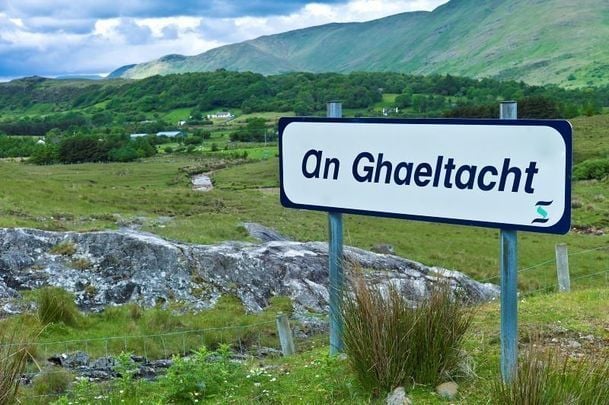A DNA expert has suggested that the Irish language can trace its roots to the arrival of settlers from the Pontic-Caspian Steppe in Eastern Europe around 4,500 years ago.
Professor Emeritus Jim Mallory of Queen's University, one of the foremost experts in genetics studies on the island of Ireland, has published a paper suggesting that the Irish language can trace its origins to the arrival of the Beaker Bell culture in Ireland.
The Beaker Bell culture, which refers to the beaker-shaped drinking vessel, was dominant across Western Europe around 3,500 years ago and emanated from the northern shores of the Caspian and Black Seas.
Until recently, however, the lack of beaker-shaped objects uncovered in Ireland led archaeologists to believe that the culture made little impact in Ireland.
However, recent genetic breakthroughs have revealed that 84% of Irish males have a genetic marker associated with the Beaker Bell culture.
Experts have since concluded that the lack of beaker-like objects in Ireland is a result of people who settled in Ireland forming their own distinct culture separate from the rest of Western Europe.
Mallory added that there was an "overwhelming predominance of cremation burial" in Ireland, meaning physical evidence of the Beaker Bell culture was likely burned.
He said there is indisputable evidence that the majority of Irish people are descended from the Beaker Bell culture, with implications for the origins of the Irish language.
Irish is commonly referred to as one of the Celtic languages derived from Indo-European, but the Celtic language and culture was first identified by the Greeks around 600BC, roughly 2,000 years after members of the Beaker Bell culture first settled in Ireland.

Love Irish history? Share your favorite stories with other history buffs in the IrishCentral History Facebook group.
According to the Irish News, Mallory believes there was no subsequent invasion or settlement of Ireland until the arrival of the Vikings in the 8th century AD.
"Many linguists will be forced to reconsider a model of Irish origins that they had presumed was linguistically implausible," Mallory said.
Mallory added that the only other plausible explanation for the origin of the Irish language is that a more recent source of Irish developed in the Bronze Age or Iron Age.
"In short, it seems that the geneticists have gifted not only archaeologists but also linguists with the opportunity of living in 'interesting times'," he told the publication.




Comments